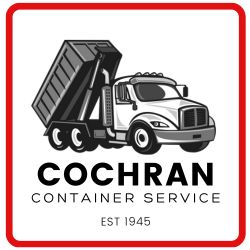How it works
When renting a dumpster (also known as a container) from Cochran Container Service –
- Container in a size suited for your job will be dropped off at your specified location and dropped in a suitable place.
- The dumpster delivery system includes a “hook” delivery system which allows the container to be placed in strategic locations.
- Service locations include Saranac Lake and all surrounding areas in New York (Lake Placid, Wilmington, Keene, Keene Valley, Tupper Lake, Newcomb, Bloomingdale, Vermontville, Paul Smith’s, Saint Regis, Lake Clear, etc).
Dumpster Rental Period
- We know every project is different—that’s why our dumpster rentals work around your timeline, not the other way around. Whether you need it for a single day, a weekend, or several weeks, we make it easy to keep your dumpster as long as you need.
- Adjustable Pickups: Done sooner than expected? We’ll pick it up early. Need more time? We can extend your rental with just a quick call.
Customer Loads the Dumpster/Container
- Customers should load evenly to distribute the weight being careful not to overfill the container above the top or sides.
- If the container/dumpster is loaded above the top or sides and/or is loaded unevenly, it may not be able to be transported and the customer may incur additional fees.
Acceptable waste materials
- All types of Non-Hazardous Construction and Demolition materials such as wood, metal, and plastic, drywall, green waste, cardboard, and household items including furniture and appliances
- Heavy materials such as concrete, dirt, sand, brick, etc. are allowed in small quantities
- Arrangements must be made in advance for these type of items to ensure the weight will not exceed the legal road limit
Prior arrangements are needed for these types of waste:
- All hazardous wastes including chemical products
- oil filters, herbicides and pesticides
- radioactive material, solvents, paint (except completely dried paint cans)
- other flammable liquids
- aerosol cans
- propane tanks
- fire extinguishers
- motor oil
- transmission oil/ lubricating/hydraulic oil/oil filters
- contaminated oils (mixed with solvents, gasoline, etc.)
- antifreeze
- railroad ties
- green treated lumber
- refrigerators
- petroleum contaminated soil/lead paint chips
- tires
- batteries, fluorescent tubes, medical waste
- asbestos
- sealed tanks or barrels
- all liquids
